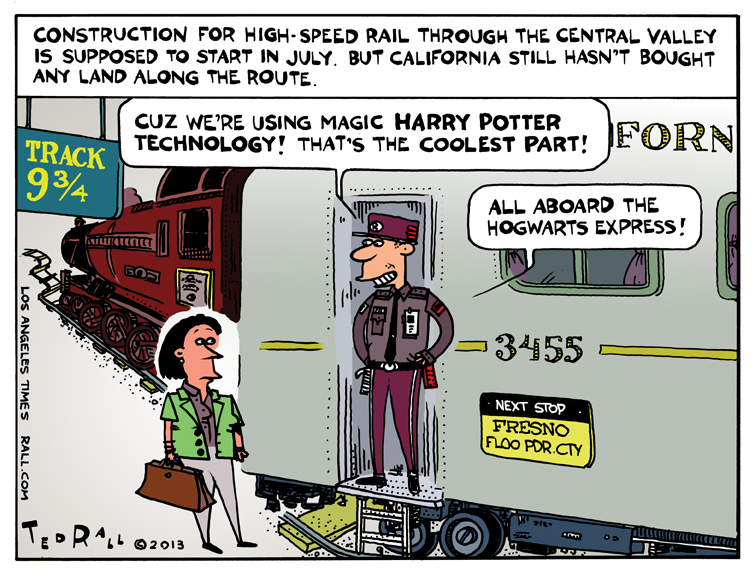An Armed, Disposable and Dangerous System
What’s shocking is that it doesn’t happen more often.
When a heartless system refuses to listen or help, when it crushes and grinds down millions of people day after day, year after year, everywhere, it’s illogical and unreasonable to assume that all its victims will pick themselves up, dust themselves off and reinvent themselves. (Job retraining! Start a business! Win the Lotto!) Some people will crack. Others will explode.
It’s inevitable.
Consider the case of the ex-Los Angeles police officer and Iraq War vet who triggered a massive manhunt after he allegedly shot three people in retaliation for his dismissal in 2008. Based on media accounts so far, Christopher Dorner had reason to be angry. After he reported a partner for assaulting a homeless man, a review board concluded that there wasn’t enough evidence to charge the other cop. Fair enough. Maybe the partner was innocent. But then they went too far, firing the officer who brought the charge for filing a false report.
Officer Dorner had already taken a chance by stepping forward, risking ostracism and the chance to advance in his career. Firing him – even if he was wrong in this case – is heinous.
Anyone familiar with the behavior of white cops in predominantly African-American neighborhoods and who has seen the LAPD in action has to admit that the accusation – kicking a bum – is well within the realm of plausibility. Anyone who has ever faced off against an arresting officer in court knows that cops lie. And anyone who has filed a complaint against the police and their behavior soon learns that the chances of obtaining redress, much less justice, range from slim to none. (Disclosure: I’ve experienced all three.)
Ruling against Dorner in 2010, a Superior Court judge noted that administrative review panels – in this case, the LAPD itself – enjoy a “presumption of correctness” under state law. Which makes suing pointless.
“I have exhausted all available means at obtaining my name back,” Dorner wrote on Facebook. “I have attempted all legal court efforts within appeals at the Superior Courts and California Appellate courts. This is my last resort. The LAPD has suppressed the truth and it has now lead to deadly consequences.”
Los Angeles police officials spun the wanted ex-cop’s Facebook manifesto, which described the force as brutal, corrupt and racist – “The department has not changed since the Rampart and Rodney King days. It has gotten worse” – as out of date, a relic of the 1990s, before the scandal-ridden “old LAPD” got reformed (by good people like them). Unfortunately for their we’re-nice-guys-now messaging, their trigger-happy ground troops were rocking it old-school in their hunt for their former colleague, twice opening fire with assault rifles on vehicles they thought fit the description of the truck driven by the suspect before bothering to take a look at three people inside two cars, none of whom look anything like him yet wound up in the hospital anyway.
To his credit, or at least that of the Police Department’s publicity office, Chief Charlie Beck announced that the LAPD would re-examine Dorner’s dismissal.
How exactly is this going to work? If it turns out the guy was right, and that he never should’ve been let go, does he get his job back while he’s serving three life terms? Confusing. But it sounds good. That’s what matters.
Needless to say, a shooting spree is an inappropriate response to injustice. Still, the case of the cop gone rogue is a parable for our time. Authority is unaccountable. Individuals are powerless. Checks and balances, however well they worked in the past, have evaporated. It’s a system doomed to fail.
Fired or laid off? Chances are, you’re an “at will” employee. That means that, no matter how hard you work and how good you are your job, your boss can fire you. There’s nothing you can do about it. Even if you have the money to sue – and if you have that much money, you probably didn’t need the job in the first place – no honest lawyer will take your case. Employers have all the power. Is it any wonder that wages are stagnant or falling? Who would be stupid enough to dare to ask for a raise?
What happens to people like Officer Dorner, who lose everything? The American system – the government, political leaders, gatekeepers in the media – has no answer.
We live in a disposable society. We are disposable. When our skill set or education or personality or serendipity no longer fits the demands of the marketplace, when we suffer an injury to our bodies or our minds that reduces us to uselessness under the cold capitalist calculus of value-added cost-benefit profit-loss, we get turned out. No income, no home. No status, no life. What should you do? Where should you go? Nobody cares, not even about our so-called national heroes, our sainted troops whom the yellow stickers on our SUVs pledged to support. Every day, 22 veterans commit suicide. Tens of thousands are homeless.
Note to the architects of the American political system: if you’re going to build your economy on the blood and crushed bones of powerless citizens, it’s not the smartest idea to pair disposability of the individual with a cult of militarism that sends millions to war. Every now and then, as in the case of fired officer Christopher Dorner, the victims of your brutalist slave-labor approach to labor-management relations turn out to be heavily armed, highly trained, out to kill – with nothing left to lose.
(Ted Rall’s website is tedrall.com. His book “After We Kill You, We Will Welcome You Back As Honored Guests: Unembedded in Afghanistan” will be released in November by Farrar, Straus & Giroux.)
COPYRIGHT 2013 TED RALL

